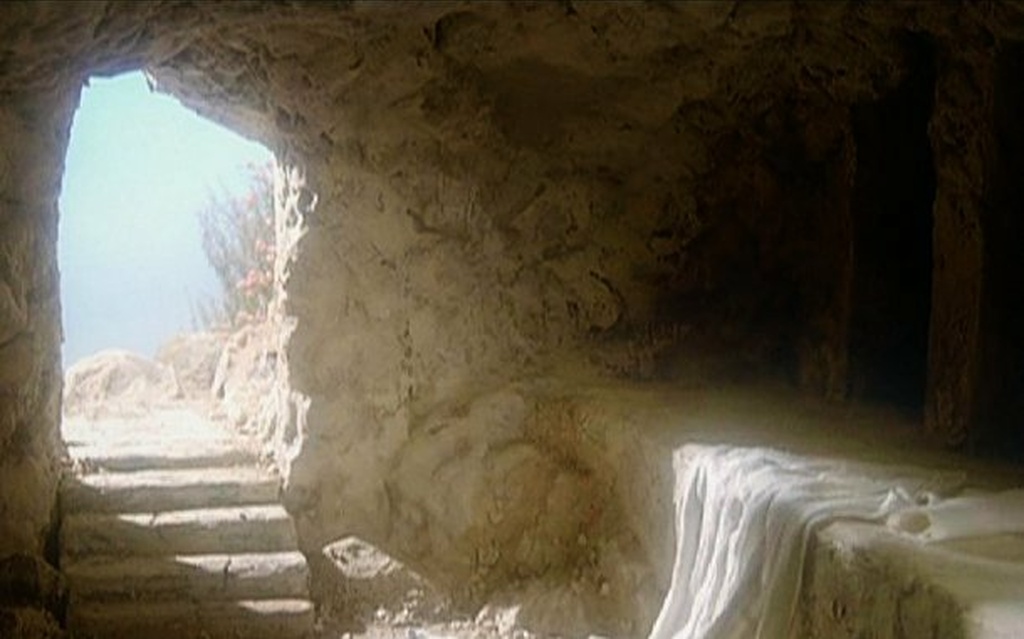
The Lesson of the Empty Tomb
The resurrection of Jesus points us forward to the restoration of all things under the Lord. If death cannot hold God, the vicissitudes of life in a fallen world are certainly no impediment to His providential ordering of history. It is easy to be concerned about the events that swirl around us rather than the larger picture that we serve a victorious Lord.

- Mark R. Rushdoony
Easter has always been the high point of the Christian calendar. It celebrates not just the historical reality of Christ’s resurrection, but also the certainty of His purpose through His kingdom. The resurrection of Jesus points us forward to the restoration of all things under the Lord. If death cannot hold God, the vicissitudes of life in a fallen world are certainly no impediment to His providential ordering of history. It is easy to be concerned about the events that swirl around us rather than the larger picture that we serve a victorious Lord.
There are many things we could say about the COVID-19 issue. They boil down to one overriding theme, that modern man lives in a fragile state of an artificial prosperity, a bubble that could be bursting even as I write this. Since the Depression and New Deal, our economy has been based on government-created currency (now just digits on a computer) added to our monetary system to simulate an illusion of wealth. All such infusions of money are a form of debt. The effect is that of a counterfeiter living a seemingly prosperous life by printing cash in his basement; the illusion of prosperity is a fraud.
“Hard money” advocates have been predicting a harsh reckoning for decades. In 2008 many felt it was imminent. Now, the economic fallout of shelter-in-place orders may force us into a major recession, perhaps even a depression.
What I find interesting is that major political fallout at the polls usually follows a recession, yet it may be that this downturn, if blamed on a “necessary” reaction to a health crisis, could cause such blame to be diverted.
This may not be the end of our economic bubble. If it is not, let it be our warning to get out of debt and be prepared for what lies ahead. In the meantime, let us remember the lesson of the empty tomb – no matter what men do, the cause of Christ will move forward. We are all heavily invested in our culture and its economy, but perhaps we need to focus more on our citizenship in the Kingdom of God and give that priority. The Christians suffered when Rome collapsed, but they also built communities(built on their common communion in Jesus Christ) and were the ones who built Christendom when Rome ceased to exist.
These are hard times. We thank those who continue to pray for us here at Chalcedon and our work: Providing resources to equip Christians to be self-governing in their work to further God’s Kingdom.

- Mark R. Rushdoony
Mark R. Rushdoony graduated from Los Angeles Baptist College (now The Master’s College) with a B.A. in history in 1975 and was ordained to the ministry in 1995.
He taught junior and senior high classes in history, Bible, civics and economics at a Christian school in Virginia for three years before joining the staff of Chalcedon in 1978. He was the Director of Chalcedon Christian School for 14 years while teaching full time. He also helped tutor all of his children through high school.
In 1998, he became the President of Chalcedon and Ross House Books, and, more recently another publishing arm, Storehouse Press. Chalcedon and its subsidiaries publish many titles plus CDs, mp3s, and an extensive online archive at www.chalcedon.edu. His biography of his father will be published later this year (2024).
He has written scores of articles for Chalcedon’s publications, both the Chalcedon Report and Faith for all of Life. He was a contributing author to The Great Christian Revolution (1991). He has spoken at numerous conferences and churches in the U.S. and abroad.
Mark Rushdoony has lived in Vallecito, California, since 1978. His wife, Darlene, and he have been married since 1976. His youngest son still resides with him. He has three married children and nine grandchildren.